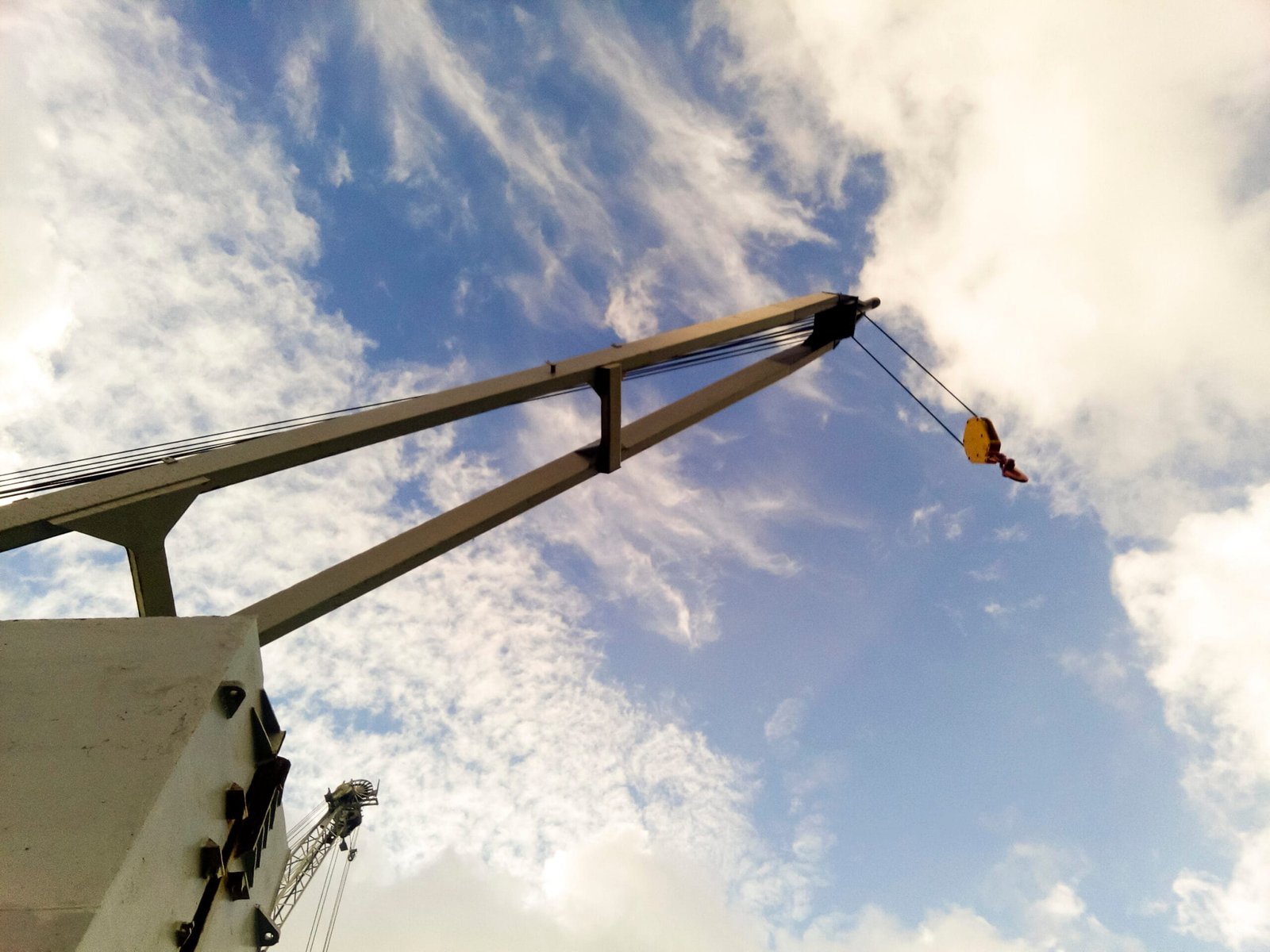How to Be a Preferred Selection for Overseas Jobs for Riggers in Gulf Countries
The Gulf region is a hub of industrial activity, particularly in oil and gas, construction, and shipping industries. This makes it an attractive destination for riggers seeking lucrative overseas employment. To stand out as a preferred candidate, riggers must understand the various aspects of their profession, including the types of riggers, required certifications, skill sets, and the importance of Gulf-specific experience. This article provides a comprehensive guide for riggers aspiring to secure jobs in Gulf countries.
Understanding the Role of Riggers
Riggers play a crucial role in industries where heavy equipment and materials need to be lifted, moved, or positioned. They work with cranes, hoists, and other lifting equipment, ensuring safety and precision in operations.
Types of Riggers
Riggers can specialize in different areas based on industry requirements:
Construction Riggers
- Specialized in lifting and installing heavy construction materials like beams, girders, and prefabricated structures.
- Primarily employed in large-scale building projects and infrastructure development.
Maritime Riggers
- Work in shipyards, ports, and offshore facilities.
- Handle loading/unloading of heavy goods and rigging for ship repair or assembly.
Oil and Gas Riggers
- Involved in offshore and onshore oil rig operations.
- Set up and dismantle drilling equipment and assist in maintaining machinery.
Entertainment Industry Riggers
- Operate in theater, events, and film production.
- Responsible for setting up and securing lighting, sound equipment, and other stage apparatus.
Industrial Riggers
- Work in manufacturing plants, power plants, and heavy industries.
- Specialize in moving and assembling machinery and industrial components.
Certifications for Riggers
Certifications validate a rigger’s skills and knowledge, ensuring compliance with safety standards and operational protocols. Some of the most recognized certifications for riggers include:
TÜV Certification
TÜV (Technischer Überwachungsverein) certifications are internationally recognized for quality and safety. These certifications are often mandatory for Gulf employers to ensure riggers meet global safety standards. TÜV offers various levels of rigging certifications, including basic and advanced rigging courses.
Bureau Veritas Certification
Bureau Veritas is a global leader in testing, inspection, and certification services. It offers rigging-specific training and certifications emphasizing safety, efficiency, and operational excellence. These certifications are highly valued in the Gulf region.
OSHA Rigging Certification
The Occupational Safety and Health Administration (OSHA) certification ensures riggers understand safety regulations and best practices. Many Gulf employers recognize this certification as it demonstrates a commitment to safety.
Other Key Certifications
- NCCER (National Center for Construction Education and Research) certification for riggers.
- LOLER (Lifting Operations and Lifting Equipment Regulations) certification, especially relevant for maritime and industrial riggers.

Key Skills Required for Riggers
To excel in the Gulf region’s competitive job market, riggers must possess a combination of technical and soft skills. Below are the essential skills:
1. Technical Skills
- Load Calculations: Understanding weight distribution, load limits, and capacity charts for safe lifting operations.
- Equipment Operation: Proficiency in using cranes, winches, pulleys, and hoists.
- Inspection Skills: Ability to inspect rigging equipment for wear and tear, ensuring operational safety.
- Blueprint Reading: Interpreting technical drawings and plans to position loads accurately.
- Tool Familiarity: Knowledge of tools like shackles, slings, and chain hoists.
2. Safety Awareness
- Compliance with safety protocols is critical in high-risk industries. Riggers should be well-versed in hazard identification and emergency response procedures.
- Certifications in First Aid and Fall Protection are highly advantageous.
3. Communication Skills
- Clear communication with crane operators, supervisors, and team members is essential to avoid accidents and ensure seamless operations.
- Basic proficiency in English is often a requirement for Gulf employers.
4. Physical Fitness
- Rigging is a physically demanding job requiring strength, stamina, and dexterity. Riggers must be able to work under challenging conditions, such as extreme heat in Gulf countries.
5. Problem-Solving Skills
- Ability to adapt to unforeseen challenges, such as equipment malfunctions or load adjustments, is a valuable trait.
Importance of Gulf Countries' Experience
Experience in Gulf countries significantly enhances a rigger’s employability. Here’s why:
1. Familiarity with Regional Standards
- Gulf countries have stringent safety and operational standards. Experience in these environments demonstrates that a rigger is already familiar with local regulations and employer expectations.
2. Exposure to Mega Projects
- Gulf nations are known for ambitious infrastructure and industrial projects, such as oil refineries, skyscrapers, and offshore rigs. Working on such projects showcases a rigger’s ability to handle complex tasks.
3. Cultural Adaptability
- Having prior Gulf experience indicates adaptability to the region’s unique work culture, climate, and multilingual teams.
4. Networking Opportunities
- Gulf-specific experience helps in building professional connections, increasing chances for future opportunities.
Advantages of Working as a Rigger in Gulf Countries
Securing a rigging job in the Gulf offers several benefits, making it an attractive career choice:
1. Competitive Salaries
- Gulf countries offer lucrative salary packages for skilled riggers. Depending on the experience and certifications, riggers can earn significantly higher wages than in many other regions.
2. Tax-Free Income
- Most Gulf countries have a tax-free income policy, allowing riggers to save a substantial portion of their earnings.
3. Perks and Benefits
- Employers often provide additional benefits like free accommodation, transportation, health insurance, and annual airfare to home countries.
4. Professional Growth
- Working on state-of-the-art projects in the Gulf enhances a rigger’s resume, opening doors for advanced roles and global opportunities.
5. Exposure to Advanced Equipment
- The Gulf’s industrial sector invests in cutting-edge machinery, allowing riggers to gain hands-on experience with the latest equipment and technology.
Steps to Become a Preferred Candidate for Rigger Jobs in Gulf Countries
. Obtain Relevant Certifications
- Start with basic rigging courses and progress to advanced certifications such as TÜV, Bureau Veritas, or OSHA. These certifications add credibility to your profile.
2. Gain Experience
- Build a solid foundation by gaining experience in industries like construction, oil and gas, or manufacturing. Highlight any Gulf-specific experience to stand out.
3. Focus on Safety Training
- Employers prioritize candidates who demonstrate a commitment to safety. Enroll in safety training programs, such as fall protection or fire safety courses.
4. Enhance Communication Skills
- Since English is the common language in the Gulf, improving your language skills can significantly boost your chances.
5. Build a Strong Resume
- Include detailed information about certifications, work experience, and key achievements. Mention any Gulf experience prominently.
6. Connect with Recruitment Agencies in Pakistan
- Work with reputable manpower agencies specializing in Gulf placements.
Conclusion
The demand for skilled riggers in Gulf countries remains strong, driven by the region’s thriving industrial and infrastructure sectors. By acquiring relevant certifications, honing essential skills, and gaining regional experience, you can position yourself as a top choice for employers. Gulf jobs offer not just financial rewards but also professional growth opportunities, making it a dream destination for riggers worldwide.
Remember, success in overseas jobs requires continuous learning and adaptation to industry trends. Stay committed to improving your skills and certifications, and you’ll be well on your way to a rewarding career in the Gulf.
Get in touch with
Premier Recruitment Agency
of Pakistan
Disclaimer :
The information provided in blog articles and how-to guides on the LinkArabia website is for general informational purposes only. While we strive to provide accurate and up-to-date content, we make no representations or warranties of any kind, express or implied, about the completeness, accuracy, reliability, suitability, or availability of the information. Any reliance you place on such information is strictly at your own risk. For more information , please read linkarabia disclaimer policy.



